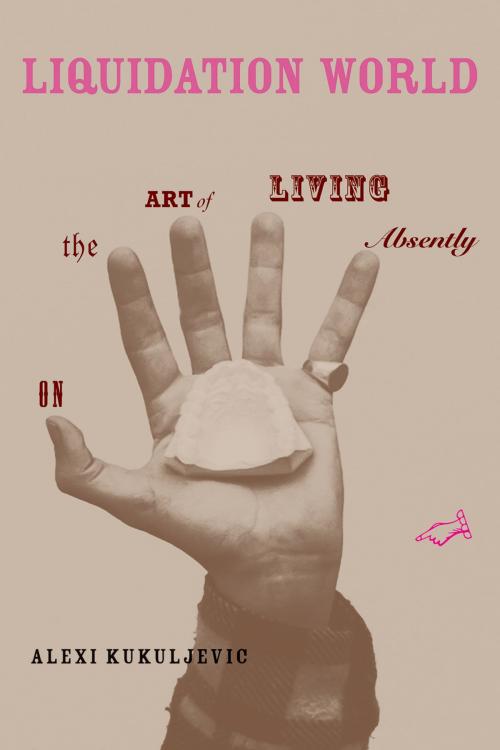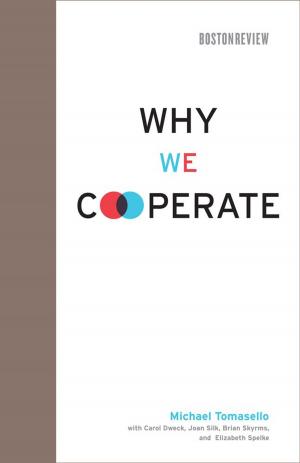Liquidation World
On the Art of Living Absently
Nonfiction, Art & Architecture, Art History, General Art, Religion & Spirituality, Philosophy| Author: | Alexi Kukuljevic | ISBN: | 9780262342131 |
| Publisher: | The MIT Press | Publication: | September 8, 2017 |
| Imprint: | The MIT Press | Language: | English |
| Author: | Alexi Kukuljevic |
| ISBN: | 9780262342131 |
| Publisher: | The MIT Press |
| Publication: | September 8, 2017 |
| Imprint: | The MIT Press |
| Language: | English |
An examination of the disoriented subject of modernity: a dissolute figure who makes an makes an object of its absence; from Baudelaire to Broodthaers.
In Liquidation World, Alexi Kukuljevic examines a distinctive form of subjectivity animating the avant-garde: that of the darkly humorous and utterly disoriented subject of modernity, a dissolute figure that makes an art of its own vacancy, an object of its absence. Shorn of the truly rotten illusion that the world is a fulfilling and meaningful place, these subjects identify themselves by a paradoxical disidentification—through the objects that take their places. They have mastered the art of living absently, of making something with nothing. Traversing their own morbid obsessions, they substitute the nonsensical for sense, the ridiculous for the meaningful.
Kukuljevic analyzes a series of artistic practices that illuminate this subjectivity, ranging from Marcel Duchamp's Three Standard Stoppages to Charles Baudelaire's melancholia. He considers the paradox of Duchamp's apparatus in the Stoppages and the strange comedy of Marcel Broodthaers's relation to the readymade; the comic subject in Jacques Vaché and the ridiculous subject in Alfred Jarry; the nihilist in Paul Valéry's Monsieur Teste; Oswald Wiener's interpretation of the dandy; and Charles Baudelaire as a happy melancholic. Along the way, he also touches on the work of Thomas Bernhard, Andy Kaufman, Buster Keaton, and others. Finally, he offers an extended analysis of Danny's escape from his demented father in Stanley Kubrick's The Shining.
Each of these subjects is, in Freud's terms, sick—sick in the specific sense that they assume the absence of meaning and the liquidation of value in the world. They concern themselves with art, without assuming its value or meaning. Utterly debased, fundamentally disoriented, they take the void as their medium.
An examination of the disoriented subject of modernity: a dissolute figure who makes an makes an object of its absence; from Baudelaire to Broodthaers.
In Liquidation World, Alexi Kukuljevic examines a distinctive form of subjectivity animating the avant-garde: that of the darkly humorous and utterly disoriented subject of modernity, a dissolute figure that makes an art of its own vacancy, an object of its absence. Shorn of the truly rotten illusion that the world is a fulfilling and meaningful place, these subjects identify themselves by a paradoxical disidentification—through the objects that take their places. They have mastered the art of living absently, of making something with nothing. Traversing their own morbid obsessions, they substitute the nonsensical for sense, the ridiculous for the meaningful.
Kukuljevic analyzes a series of artistic practices that illuminate this subjectivity, ranging from Marcel Duchamp's Three Standard Stoppages to Charles Baudelaire's melancholia. He considers the paradox of Duchamp's apparatus in the Stoppages and the strange comedy of Marcel Broodthaers's relation to the readymade; the comic subject in Jacques Vaché and the ridiculous subject in Alfred Jarry; the nihilist in Paul Valéry's Monsieur Teste; Oswald Wiener's interpretation of the dandy; and Charles Baudelaire as a happy melancholic. Along the way, he also touches on the work of Thomas Bernhard, Andy Kaufman, Buster Keaton, and others. Finally, he offers an extended analysis of Danny's escape from his demented father in Stanley Kubrick's The Shining.
Each of these subjects is, in Freud's terms, sick—sick in the specific sense that they assume the absence of meaning and the liquidation of value in the world. They concern themselves with art, without assuming its value or meaning. Utterly debased, fundamentally disoriented, they take the void as their medium.















